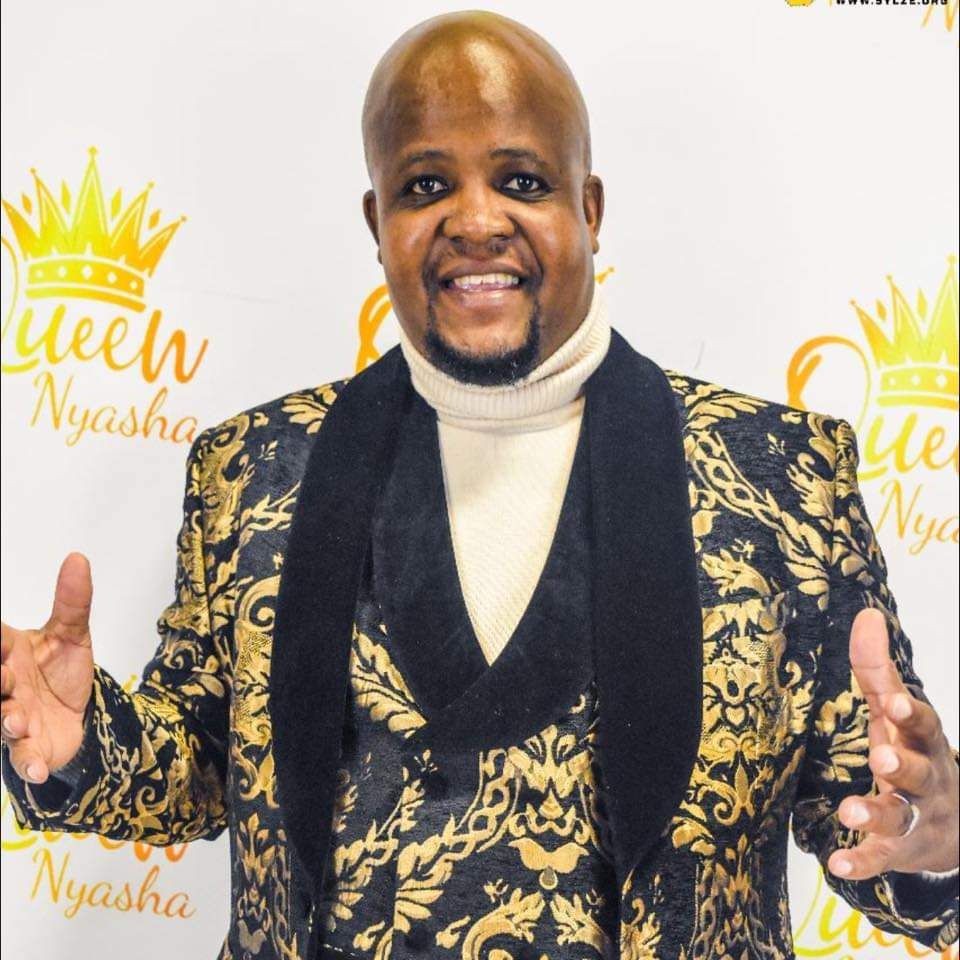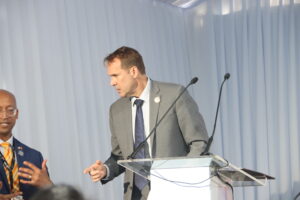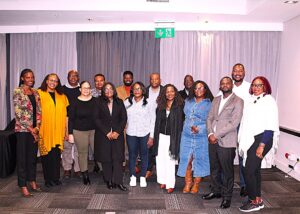The Resilient Magodhi Twins
Big Ariel Magodhi was well known throughout Mbizo Section 6, not just as a formidable goalkeeper but also as a feared local enforcer. His twin brother Abel, though physically frail and cheerful, shared an unbreakable bond with his brother, never hesitating to join a fight whenever Ariel was involved. The Magodhi twins had a reputation for resilience—they would never back down until they emerged victorious. Their unity, an unshakable force, was built on a foundation of mutual trust, an essential trait of strong leadership. They moved as one, fought as one, and celebrated as one.
The Influence of Giant Jonathan
A few houses down lived Giant Jonathan, another powerhouse, but with a different edge. Unlike the twins, he possessed a charming yet ruthless nature. Raised in a gambling household, he had a flashy okapi knife tucked in his waistband—not that he needed it. His fists spoke louder than any blade ever could. In our part of the world, physical dominance was a currency, and these guys were the wealthiest in the neighborhood. Despite his aggressive streak, Jonathan understood the power of influence. He could command an audience with a single word, his booming voice carrying authority that few dared to challenge. Strength, after all, was not just about muscle—it was about presence.
The Power of Strategy
I, on the other hand, was a featherweight among these titans. But what I lacked in brute force, I made up for with my mind. I was the cerebral assassin of our group—the one who thought ahead, the strategist who could anticipate moves before they happened. Growing up in a cramped, matchbox-sized house with seven other family members, I had learned to use my mind as my greatest asset. I understood that leadership was not just about being the loudest or the strongest but about being the smartest, about knowing when to act and when to hold back.
Soccer as a Leadership Training Ground

Yet, despite our differences in strength and intellect, the one thing that bound us together was our love for soccer. Our team, the Yellow Line Street Bombers, had a reputation—not just for our skills but for our sheer refusal to accept defeat. We played with the same determination that we carried in our daily struggles. When a match reached a crucial point, the game wouldn’t end until we dictated the final outcome. If the score was tied at 3-3, it was a battlefield. If the opponents scored a goal, Ariel would clutch the ball in his massive hands like a mere orange, shaking his head in protest. Jonathan, his deep voice booming, would declare it an illegitimate goal. Our will to win was unshakable.
Leadership Lessons from the Field
But it wasn’t just about winning—it was about leading. Even in those intense moments, we were developing qualities that would define us later in life. Ariel was fearless, standing as the last line of defense in every game, never giving in no matter how fierce the attack. His unshakable stance, even in the face of overwhelming odds, was a testament to his courage—a leadership trait that inspired us all. Abel, though smaller, was fiercely loyal, always supporting his brother—an embodiment of teamwork and solidarity. In any battle, he was right there, proving that leaders don’t always have to be in the front to make an impact. Jonathan, despite his brute force, commanded respect with his charm and confidence, proving that leadership is not always about dominance but about presence and persuasion.
The Role of the Thinker
And then there was me, the thinker, the planner, the one who saw the game from a different perspective. I learned to analyze every move, anticipate every reaction, and strategize our way to victory. That ability—to think ahead, to predict, to outmaneuver—was leadership in itself. It wasn’t just about reacting; it was about shaping the game before it even played out.
Leadership Beyond the Game
More from Africa News 24
Betrayed by the Hand of a Brother- By Dr Ted Msipa (PhD)
Leadership, like soccer, is about strategy, perseverance, and unity. The beautiful game brought us together, but it also shaped us into the people we would become. In the heat of the matches, we learned the value of standing by our team, thinking under pressure, and pushing beyond limits. It taught us that leadership isn’t about controlling others but about inspiring them, about knowing when to push and when to step back, about recognizing that every player on the field has a role to play.
A Legacy of Leadership
They say a man may not cry when his mother dies, but if Orlando Pirates loses, he sheds tears. That’s because the game is more than just sport—it’s a way of life, a test of leadership, and, above all, a battlefield where character is forged. And in that battlefield, whether in soccer or in life, leaders are born not through words, but through action.
There is something special about leadership. It exists to solve problems. Big Ariel solved plenty of problems and taught us ghetto leadership. I concede it was not the best, but it had a lot of life education. Leadership practitioner Simon Sinek submits that, ‘Leadership is not about the next election but about the next generation.’ Yet when all things are said, no leader compares to the ultimate leader, Jesus Christ. Follow him, and many will follow you.
Lead, love, and leave a legacy.

Dr Ted Msipa is Pastor, Author, Visionary, Entrepreneur and Public Speaker based in Maseru, Lesotho. He is a leading voice in leadership, personnel development, organisational thinking, transformational leader and people builder in sub-Sahara Africa and Beyond. He writes here in his personal capacity and views shared here do not necessarily reflect those of Africa News 24. Dr Ted can be reached on Coachted117@gmail.com or on +266 63177309.












